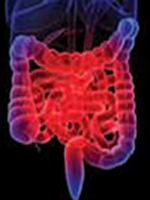
WITH SEVERE ABDOMINAL PAIN AND VOMITING at 14 weeks’ gestation, a 30-year-old woman was brought by ambulance to the hospital. After initial evaluation did not reveal a cause of her symptoms, she was transferred to the antepartum unit for observation.
The mother developed hypotension and a diagnosis of septic shock was made. Fetal cardiac activity ceased and the woman developed intestinal ischemia. She underwent an intestinal transplant several months later.
PATIENT’S CLAIM Both treating physicians and the nursing staff failed to react to her intermittently low blood pressure, and failed to diagnose or treat septic shock in a timely manner.
DEFENDANTS’ DEFENSE The patient was properly monitored and treated.
VERDICT A $11,500,000 Illinois verdict was returned against the hospital. A defense verdict was returned for both physicians.
Lethal outcome of ovarian cystectomy
A WOMAN IN HER 40s underwent ovarian cystectomy. During surgery, her gynecologist encountered dense adhesions that required bowel dissection. Later, the woman complained of severe abdominal pain, despite taking pain medication. A second gynecologist ordered an abdominal scan that showed fluid and possible bowel obstruction. Hospital staff ruled out pulmonary embolism. When her blood pressure dropped to dangerous levels, a surgeon recommended surgery. Preoperative testing found punctures in both large and small intestines. Before she could be given anesthesia, the woman suffered cardiac arrest, and was placed on a ventilator. The family asked that the ventilator be removed after three days, and she died.
ESTATE’S CLAIM The hospital staff and gynecologists were negligent in not ruling out bowel perforation as soon as the woman complained of severe abdominal pain after surgery.
DEFENDANTS’ DEFENSE Bowel perforation is a known complication of the surgery. There was no negligence; it was a complicated problem and the staff had progressively attempted to rule out various postsurgical issues.
VERDICT A $2.5 million Illinois settlement was reached.
Mother’s herpes infection transmitted in childbirth
A BABY BECAME ILL WITHIN 3 DAYS of birth and died several weeks later from a herpes virus infection. The mother had complained of burning pain during the office visits prior to delivery, and during labor and delivery.
PATIENT’S CLAIM Additional testing should have been performed when the mother complained of symptoms prior to birth. The child contracted the herpes virus during vaginal delivery; proper and timely diagnosis would have resulted in a cesarean delivery. The mother denied having sexual partners during her pregnancy.
PHYSICIAN’S DEFENSE Negative results of a Herpes Select Test 6 months before birth made follow-up testing unnecessary. She must have contracted the disease after testing had been performed. She had no symptoms that made the viral disease diagnosable at delivery. The child’s symptoms suggested transplacental transmission of herpes; a cesarean delivery would not have changed the outcome.
VERDICT A Nevada defense verdict was returned.
Home birth emergency
DURING A HOME BIRTH managed by a midwife, the baby was born after the mother pushed for 2 hours and 47 minutes. The child suffered brain damage.
PATIENT’S CLAIM The midwife was negligent in failing to send the mother to the nearest hospital after she had been pushing for 2 hours. The dangers associated with the lack of fetal heart rate monitoring had never been explained to them.
DEFENDANT’S DEFENSE The parents agreed to a home birth without use of fetal heart rate monitoring. They signed a detailed consent form, which advised them that emergencies could occur during delivery, and that the level and type of care would be less than at a hospital.
VERDICT A $1.9 million New Jersey settlement was reached.
APAS causes heart attack; fetal demise
7 MONTHS INTO HER FIRST PREGNANCY, a woman in her 20s suffered intrauterine fetal demise. A perinatologist determined that the mother has antiphospholipid syndrome (APAS), an immune system disorder that can cause excessive blood clotting, premature miscarriage, and heart attack. Although the perinatologist and Dr. A, the woman’s Family Practitioner (FP), received the report, neither told the woman.
When 6-weeks’ pregnant with a second child, the woman awoke with severe, crushing chest pain. Dr. B saw her in the emergency department, but did not order an ECG or cardiac enzyme blood test. After 7.5 hours, Dr. B diagnosed morning sickness or indigestion, or both, and was ready to discharge her. However, the woman, still in intense pain, expressed concern for her fetus. Dr. B sent her to another hospital 2 hours away.
Upon arrival, her chest pain had diminished but she reported radiating back and neck pain. Although the hospital’s protocol required ECG within 10 minutes of presentation with chest pain, no ECG was performed. A diagnosis of “gall bladder problems” was made.

